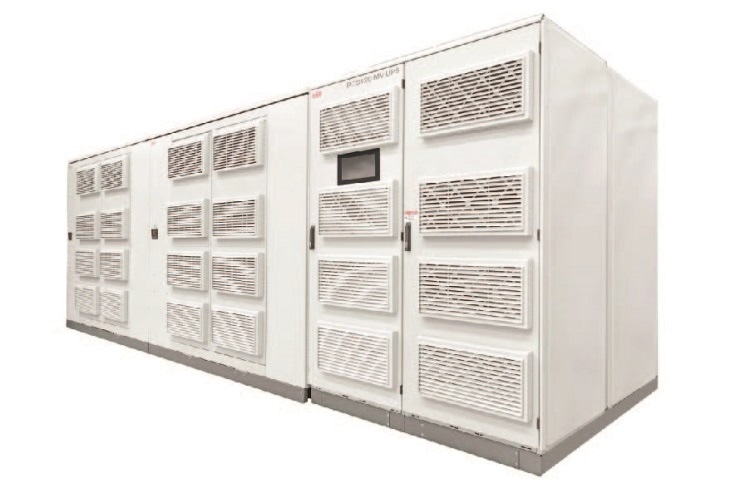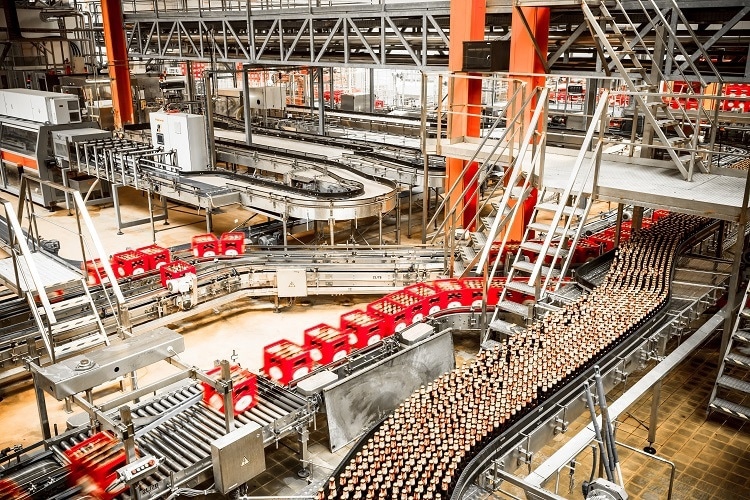 Interview conducted by Mychealla RiceOct 9 2018
Interview conducted by Mychealla RiceOct 9 2018In this interview, Dario Rozman from ABB’s Power Conditioning team, talks to AZoM about their new product PCS120 MV UPS, which is designed for large critical power facilities such as data centers.
Dario explains how the transition from low voltage (LV) to medium voltage (MV) is a natural progression of power protection.
Please give us a brief introduction and background about the company?
ABB (ABBN: SIX Swiss Ex) is a pioneering technology leader in power grids, electrification products, industrial automation and robotics and motion, serving customers in utilities, industry and transport & infrastructure globally.
Continuing a history of innovation spanning more than 130 years, ABB today is writing the future of industrial digitalization with two clear value propositions: bringing electricity from any power plant to any plug and automating industries from natural resources to finished products.
As title partner in ABB Formula E, the fully electric international FIA motorsport class, ABB is pushing the boundaries of e-mobility to contribute to a sustainable future. ABB operates in more than 100 countries with about 147,000 employees. www.abb.com
ABB has designed the next generation medium voltage uninterruptible power supply (UPS) in the form of the PCS120 MV UPS. Tell us a bit about the product?
The PCS120 MV UPS is intended for multi-megawatt power protection. It provides protection from a broad spectrum of utility voltage events and supplies continuous clean power.
It is built upon the revolutionary ZISC (Impedance Isolated Static Converter) architecture, which introduces a flexible solution.
This architecture is based on an isolating line reactor coupled with the high-performance ABB power converters.
This simple approach, backed up with advanced control, provides unmatched reliability and performance, with leading class efficiency.

Why did you decide to develop the product? Was there a gap in the market for a product like this?
ABB has developed a range of medium voltage UPSs as a result of the changing landscape in industry and data centers. To gain economies of scale, facilities are becoming larger and demanding increasing levels of power. As power requirements increase, moving to medium voltage is a natural step.
ABB introduced the PCS100 MV UPS in 2014, targeted for specific niche markets. As a result of its performance, the product has been quickly established in the market. Following the successful operation of the first units, ABB was immediately challenged by customer demand from other markets to provide other possible MV power protection solutions.
ABB took up the challenge to meet customers’ needs. This meant developing an approach to include multiple voltage levels – enhanced performance – flexible system sizing – and the ability of continuous power conditioning; which resulted in the PCS120 MV UPS.
How does the PCS120 MV UPS compare to other models out there?
The PCS100 MV UPS is extremely compact for the level of power protection offered. It can be placed on a less expensive real estate located further away from the loads, such as electric rooms and substations. Also, ABB’s ZISC topology backed by the PCS120 converter technology achieves efficiencies of up to 98 percent, significantly better than the segment alternatives, which are based on old technology.

What are the key features and advantages of the PCS120 MV UPS?
One of the greatest benefits of the ZISC architecture is the medium voltage power protection with outstanding dynamic performance. That, combined with fault-tolerant system design compatibility such as ring bus systems, creates a robust and extremely reliable power protection device for critical load facilities.
Due to state of the art power electronics and robust control strategies, ABB’s PCS120 MV UPS is able to provide ultra-fast voltage recovery response – in the order of milliseconds – meeting the most severe international standards and specific customer system requirements. These include large load step, severe fault scenarios and a large variety of power quality events.
Flexibility is another feature, the architecture allows for a single unit at 2.25 MVA up to 40+ MVA – in a ring bus configuration to provide high levels of power and redundancy. The PCS120 MV UPS has versatile energy storage options, offering autonomies from a few seconds to several minutes. The system is available as an indoor or outdoor solution - dependent on the customer’s requirements and space allocation.
What industries will primarily benefit from the PCS120 MV UPS?
Large-scale facilities who rely on a power supply quality much greater than a utility can provide will benefit from this product. This is valid not only for data centers but also semiconductor factories and other critical load industries such as pharmaceutical, and the food & beverage sector where clean continuous power is paramount.

Image Credit: shutterstock.com/Momente
How will PCS120 MV UPS benefit larger critical Power facilities such as data centres?
These facilities have been highly impacted by economies of scale, pushing single locations to grow even larger with correspondingly higher power demand – often well into the tens of megawatts. They require an extremely reliable power supply as well as a robust power distribution and power protection design, which the PCS120 MV UPS provides.
The end result is that business is continuous with zero downtime. All systems have to be up and running, and whatever happens on the infrastructure side, load-drops are not an option. This is to guarantee a safe data transaction, storage, and recovery.
The absolute requirement of maximum reliability and optimum efficiency is vital to keep these critical load industries competitive.
Why is the transition from low voltage (LV) to medium voltage (MV) a natural progression for data centres?
Providing power protection at medium voltage allows for multiple advantages hence why it is becoming a natural transition. It increases reliability and reduces costs of the critical power facility build and operation.
Increased reliability is derived from the MV design approach with larger protected load blocks, lower switchgear count and the operating culture of medium voltage systems.
Installing the power protection at the MV level provides the most energy efficient configuration as the lower currents at this voltage result in smaller cables and lower losses.

Image Credit: shutterstock.com/Gorodenkoff
How does the PCS120 MV UPS compare when it comes to operating costs and efficient clean power?
Operating costs were one of the main drivers during the development of the PCS120 MV UPS product. We listened to the voice of the customer who was looking for a cost-effective solution when it came to the operating cost.
With the PCS120 MV UPS customer savings will be remarkable in the lifetime of a system, which is approximately 20-plus years. The PCS120 MV UPS achieves efficiencies of up to 98 percent, much higher than existing comparable solutions.
Therefore, the customer will not only achieve remarkable savings from reduced electrical energy losses, due to the lower heat dissipation, but the cooling costs will also be reduced. The PCS120 MV UPS also has the benefit of minimized downtime as you only need to shut down the unit every five years compared to once a year for other systems, consequently reducing financial impact through less downtime and service expenditure.
Where can our readers go to find out more?
You can find more information, including technical data, key applications, and a video showcasing the PCS120 MV UPS on ABB’s website https://new.abb.com/ups/systems/medium-voltage-ups
To find out more about ABB's power protection solutions:

Email: [email protected]
Web: www.abb.com/ups
About Dario Rozman
Dario is Product Manager for Power Conditioning. Dario studied electrical engineering at the Faculty of Electrical Engineering and Computing in Zagreb, Croatia with focus on automation and process control.
Dario worked 7 years in ABB Croatia with various industrial automation product and systems in product/sales management positions, before moving to New Zealand where he joined ABB’s Power Conditioning business in Napier.
Disclaimer: The views expressed here are those of the interviewee and do not necessarily represent the views of AZoM.com Limited (T/A) AZoNetwork, the owner and operator of this website. This disclaimer forms part of the Terms and Conditions of use of this website.